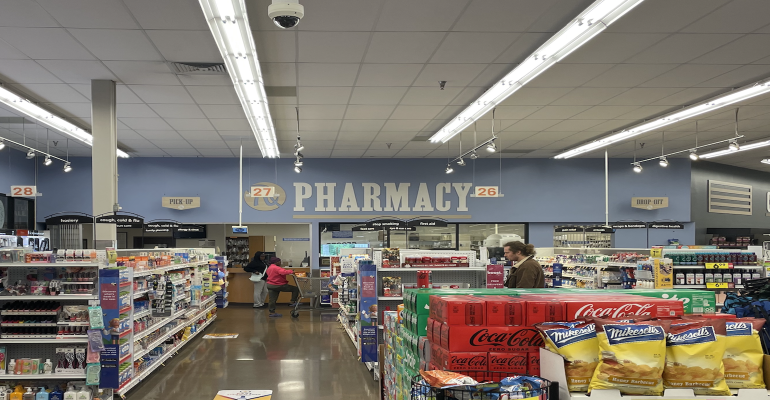Kroger announced Monday it plans to sell its specialty pharmacy business to CarelonRX, a subsidiary of Elevance Health.
The specialty pharmacy business, which is separate from its regular pharmacies and Little Clinic locations, treats patients with chronic illnesses such as rheumatoid arthritis, growth hormone deficiencies, multiple sclerosis, and bleeding disorders, the grocer said in a press release.
“Kroger Specialty Pharmacy has been part of our company since 2012, and we want to thank our management team and associates for their enduring commitment to their patients,” said Colleen Lindholz, president of Kroger Health, in a statement. “As part of our regular review of assets, it became clear that our strong specialty pharmacy business unit will better meet its full potential outside of our business.”
In its press release, Kroger did not mention any connection to its proposed $24.6 billion merger with Albertsons, but a news story on MarketWatch.com noted that a Kroger spokesperson said the two deals were “not connected.”
A Kroger spokesperson could not immediately be reached for comment.
“One of the most important considerations was continued operations to ensure minimal disruption to our associates and patients. We are confident this transaction will help the business to grow and deliver better results for patients. We look forward to working toward a smooth transition for associates and patients,” Lindholz said in the press release.
Kroger specified in the announcement that its in-store pharmacies and Little Clinics would not be included in the deal.
Last August, the California attorney general’s office voiced concern that a merger between Kroger and Albertsons could create a shortage in pharmacies due to the closure of as many as 650 Kroger and Albertsons locations.
At the time of that report, Kroger operated pharmacies at 2,254 of its locations, while Albertsons ran roughly 1,700.
The proposed merger hit a setback in February when the Federal Trade Commission and nine states filed a lawsuit to block the merger calling it “anticompetitive.” Attorneys general in Colorado and Washington state have filed separate lawsuits to stop the merger.


